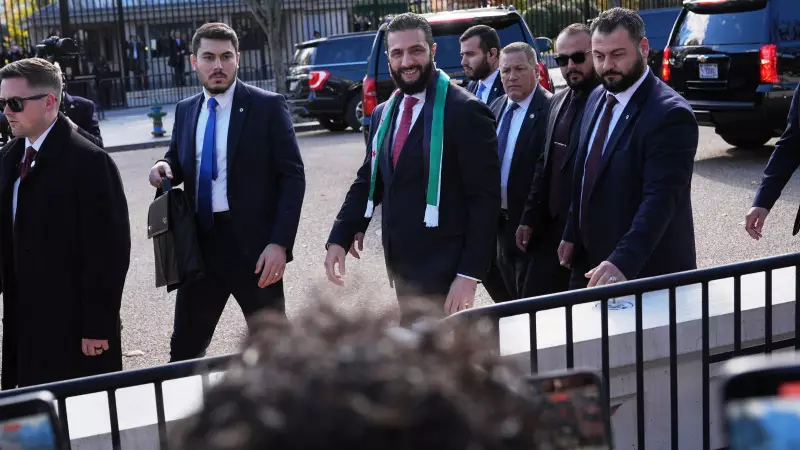
In a significant diplomatic development, former US President Donald Trump hosted Syrian President Abdullah Sharaa at his Mar-a-Lago residence, coinciding with the United States announcing limited sanctions relief toward Syria. This high-level meeting marks a notable shift in American foreign policy approach toward the conflict-ridden Middle Eastern nation.
The Mar-a-Lago Meeting Details
The meeting between Trump and Sharaa occurred amidst ongoing regional tensions and represents one of the highest-level engagements between American and Syrian officials in recent years. The discussions focused on multiple aspects of bilateral relations and regional stability concerns that have long plagued US-Syria interactions.
President Sharaa's visit to Trump's Florida property underscores the unconventional diplomatic channels being utilized in contemporary international relations. The Syrian delegation included several key ministers and advisors, indicating the importance Damascus places on this diplomatic outreach.
Limited Sanctions Relief Announcement
Concurrent with the presidential meeting, the US administration revealed it would extend limited sanctions relief to Syria. This decision, while not representing a comprehensive policy shift, signals potential openness to gradual normalization of relations under specific conditions.
The sanctions relief primarily focuses on humanitarian concerns and certain economic sectors, carefully calibrated to address immediate needs while maintaining pressure on strategic areas. American officials emphasized that this represents a measured approach rather than a wholesale policy change toward the Syrian government.
The timing of this announcement alongside the Trump-Sharaa meeting suggests coordinated diplomatic messaging aimed at testing international reactions while advancing specific American interests in the region.
Regional and International Implications
This diplomatic development carries significant implications for Middle Eastern geopolitics. Regional powers closely monitored the engagement, with various stakeholders expressing mixed reactions to the warming of US-Syria relations.
Neighboring countries and international organizations are assessing the potential impact on existing alliances and conflict dynamics in the region. The meeting occurs against the backdrop of ongoing humanitarian challenges in Syria and complex multilateral negotiations involving regional stability.
International observers note that this engagement could potentially reshape diplomatic calculations among key players in the Middle East, including Iran, Israel, and Gulf states, all of whom maintain significant interests in Syrian affairs.
The limited sanctions relief, while modest in scope, may create openings for increased humanitarian assistance and economic activity in certain sectors. However, substantial restrictions remain in place, reflecting continued concerns about various aspects of Syrian policy and behavior.
This diplomatic maneuver represents the latest chapter in the evolving relationship between the United States and Syria, two nations that have experienced decades of complex and often contentious interactions. The outcomes of this engagement will likely influence future policy directions for both governments and their international partners.





